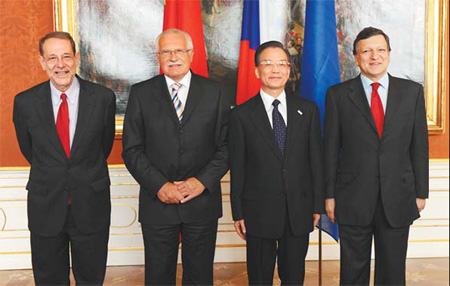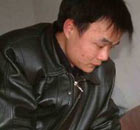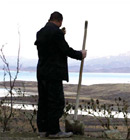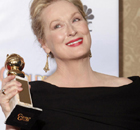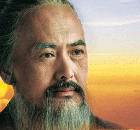EU-CHINA BUSINESS SUMMIT
Ambassador backs EU-China accord
By Jia Jingqi (China Daily)
Updated: 2009-11-30 07:46
 |
Large Medium Small |
|
China's Premier Wen Jiabao meets with the President of the Czech Republic, Vclav Klaus (second from left), the President of the European Commission Jose Manuel Barroso (first from right), and the Secretary-General of the Council of the EU and High Representative for the Common Foreign and Security Policy Javier Solana (first from left) at the recent 11th EU-China Summit this May in Prague. Many of them will now meet again in China. Huang Jingwen |
The mutual respect of China and EU forms a very solid basis for a partnership between the two parties, according to Serge Abou, ambassador and head of the delegation of the European Commission to China. Speaking exclusively to China Daily of the eve of the EU-China Leaders summit, the ambassador called on both sides to develop ties for their mutual benefit and also to work together to find solutions to a number of global issues.
High on his list was cooperation in the fields of world peace and stability, climate change, assistance to developing countries, combating terrorism, ending world hunger and preventing nuclear proliferation.
Previewing the likely agenda of both the EU-China Leaders Summit and the EU-China Business Summit, both of which open today in Nanjing, the capital of Jiangsu province, Abou, said three main issues will face delegates. He identified these as EU-China relations, the economic crisis and climate change, with particular regard to the outcome of the Copenhagen Conference.
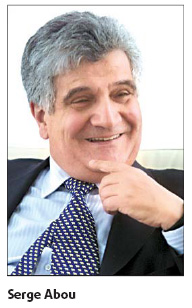
Addressing himself to the first issue, the ambassador said: "Regarding the world economy, I think the most important issue here is to discuss just how to best implement the G20 Agenda. The exit strategies of the crisis should be coordinated.
"The main economies are not all at the same point on their roads to recovery. Some, like China, have already resumed high growth rates. Some are just out of the recession and some others are still in recession. It is important to ensure that the exit strategy of one does not prejudice the strategy of the others, especially if we want to have a new start for world growth."
Abou did not accept that protectionism is inevitably gaining momentum in the EU countries as a result of the global economic downturn. Although the trade figures between China and EU obviously suffered as a result of the crisis, he said protectionist pressures have basically been resisted as the EU has not adopted any "exceptional instruments" as a safeguard clause.
The ambassador pointed out that the total value of the measures presently in force against China's exporters represent less than 0.5 percent of the EU's total imports from China.
Looking forward to the great potential of expanding bilateral trade, the ambassador admitted he had high hopes of the green economy, one of the main topics likely to be addressed during the Business Summit.
He said: "The sectors showing the greatest promise are certainly those related to the environment, the energy revolution and climate change. I also predict good opportunities for our consumer industries, such as fashion and luxury goods, within the Chinese market. I also see growing investments in Europe from China."
Aside from economic ties between the two political entities, the ambassador sees equal importance in expanding cultural and educational links. He said: "In the future we will develop our cultural and educational cooperation, as it is necessary to place everyday people at the center of our partnership, which is, for the moment, mostly conducted by diplomats, business men and academics."
In line with this, the EU will have a high-profile presence at the 2010 Shanghai Expo, according to the ambassador.
Expanding upon the EU's commitment to the Expo, the ambassador said: "The Shanghai Expo will be our first participation in an Expo outside our own borders. This corresponds precisely with our desire to ensure that the EU is better known by a larger Chinese audience.
"Our Expo presentation will focus on our history and most high-profile achievements. The slogan of our pavilion is 'Intelligent Europe'. It will showcase the ways in which Europe has brought together the achievements of all of its individual member states - and even added value to these achievements. Above all, we will try to present just what characterizes Europe - beautiful and diverse cities, modern urban areas, a love of sport, especially football, as well as its joint cultural, musical and artistic heritage."
Copenhagen Conference
Abou pointed out that the Nanjing summit occurs at an opportune moment for comparing the positions of China and the EU on the threat of global warming. He said it will also allow them to coordinate their approach to the 2009 United Nations Climate Change Conference in Copenhagen, which will take place one week after the EU-China events.
He said: "We know that reaching an agreement during the Copenhagen Conference will be very difficult, but we all have to make our best efforts. The role played by the EU on this issue has been commensurate with its responsibilities as the most important union of advanced countries. We have made a number of very courageous proposals. China too is considering its position on the basis of the orientation given by President Hu Jintao at the last UN General Assembly."
A better functioning EU
As the Nanjing summits convene one day before the Lisbon Treaty comes into effect, said the ambassador, the newly appointed EU president, Mr Van Rompuy and its high representative for external relations, Baroness Ashton, will not be participating in the events. The ambassador, though, remains convinced that China-EU relations will only benefit from this new leadership, which will give the EU greater consistency, higher visibility and more continuity. This new constitutional arrangement, said the ambassador, will ensure a substantial contribution from the EU in terms of addressing global challenges, as well as in conducting its relationships with its allies and partners.
Commenting on the new set-up, he said: "We will now have a more democratic Union with an increased role for the European Parliament in the legislative process. There will be more decisions taken by the majority and hence fewer powers of veto. Above all, there will be greater continuity and visibility."
(China Daily 11/30/2009 page16)
